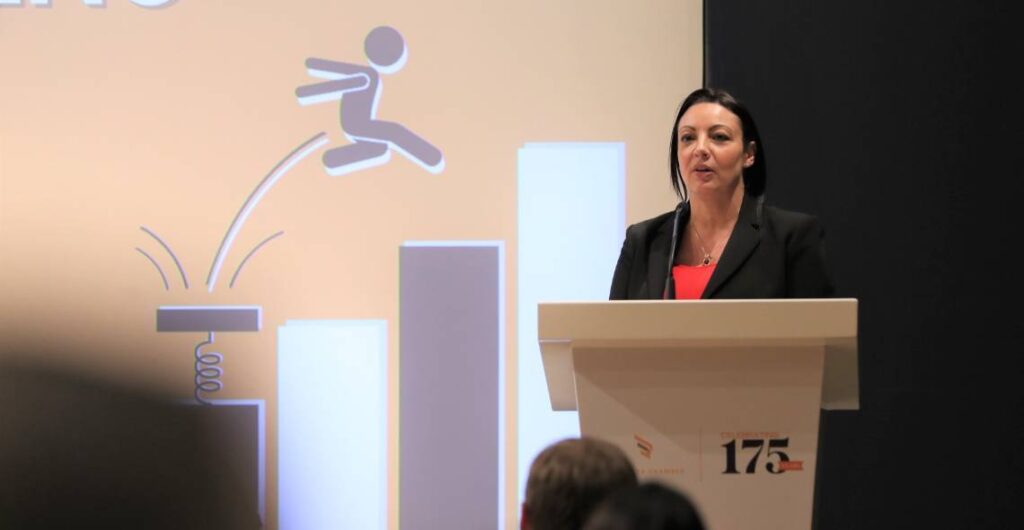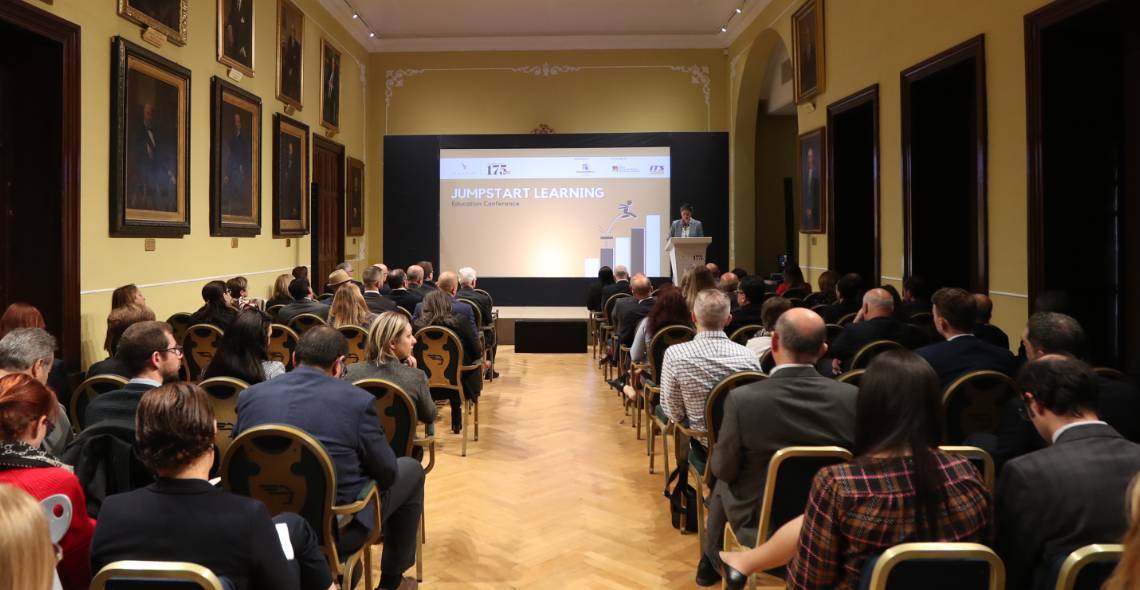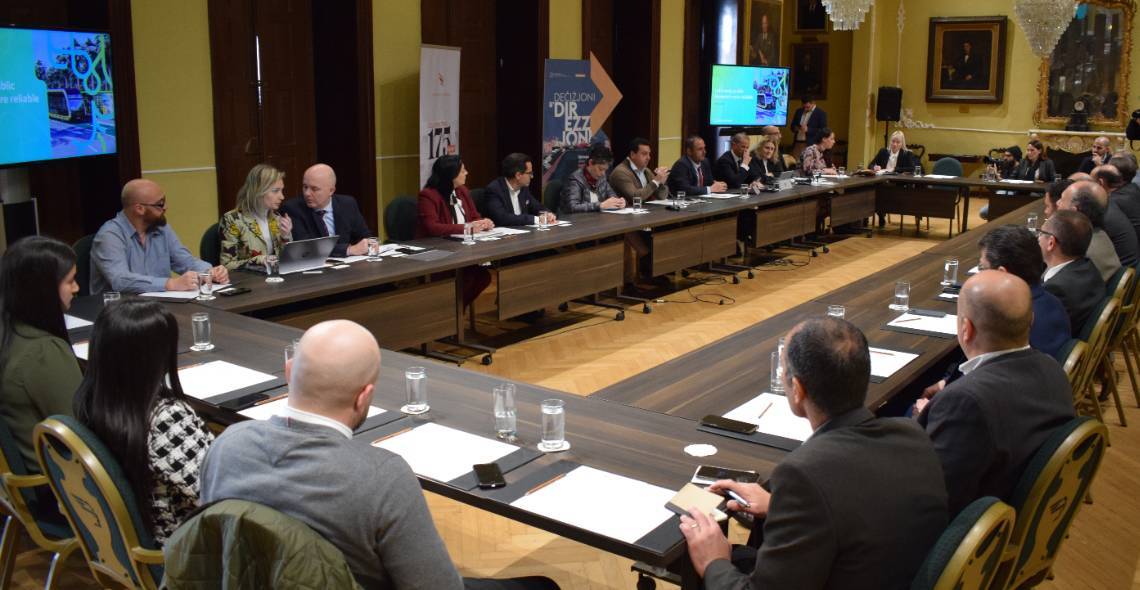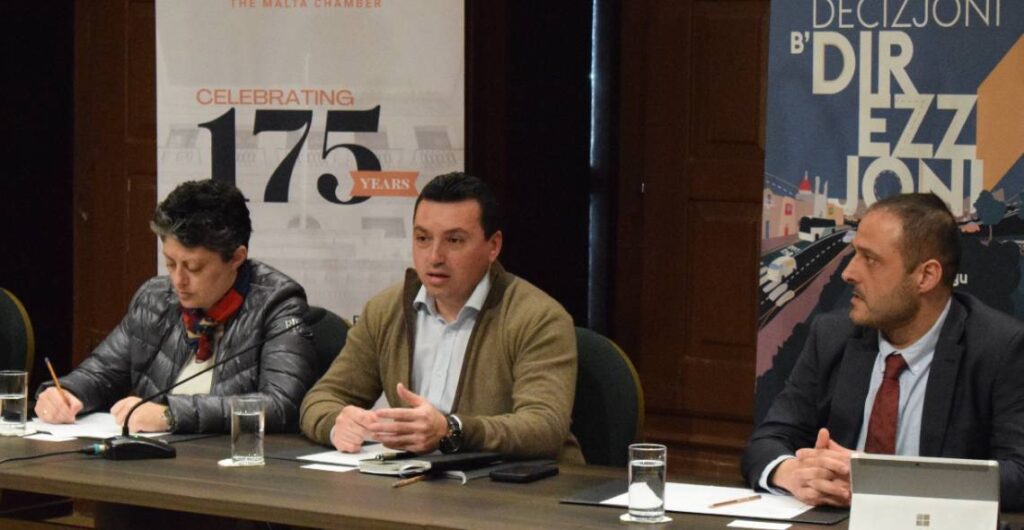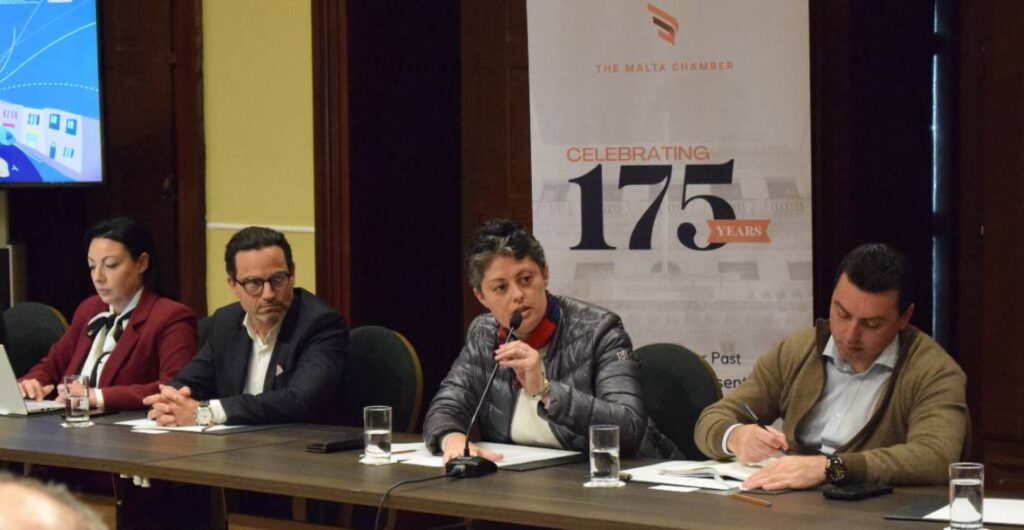Employers can help educators to anticipate the future needs
Make learning and development a central part of long-term planning and strategy, President of The Malta Chamber of Commerce, Enterprise and Industry Marisa Xuereb said during an education conference titled ‘Jumpstart Learning’. She emphasised that the upskilling and reskilling of the workforce are imperative for every business that wants to remain competitive. President Xuereb noted that, “employers need to be actively engaged in shaping the vision for education, not just as the future employers of today’s students. They must also act as life-long education providers of today’s workers and future workers who are still in formal schooling.”
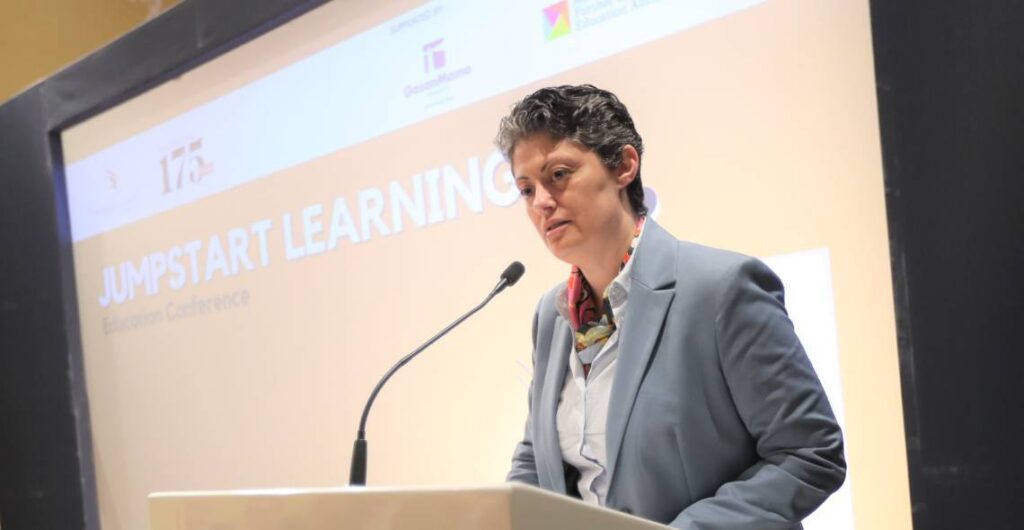
During this conference attended by both educators and employers, Ms Xuereb also reiterated that there needs to be more coordinated action and more systematic public-private partnerships when it comes to training and education. In the past few months, The Malta Chamber embarked on a number of collaborations with both MCAST and the University of Malta, whilst trying to bridge the different ambitions and expectations between academic institutions, who excel in providing qualifications, and employers who desperately seek to develop competencies.
President Xuereb reminded the audience that while employers do not have a crystal ball, they are in a better place than educators to anticipate the future needs of their industry. “To this end, it is important for educators to acknowledge that what is required from their end is to provide students with the skills that are required in the immediate plus the ability to learn over time what may be required in future,” she said. President Xuereb concluded her speech by addressing the needs of the students. “What they really need is the ability to read (or hear) and understand the knowledge they can access, the crucial ability to reason what makes sense and what is to be ignored, and the ability to synthesize that knowledge in a way that they can retain it, apply it and transfer it to others. Educators need to acknowledge that learning needs to be predominantly skills-based rather than knowledge-based because it no longer about being able to memorize a lot of information.”
During this conference, the importance of soft skills was also highlighted, as well as the acknowledgment of neurodiversity, and the need for different learning channels that ensure that learning is accessible to all.
Professor Colin Calleja, Dean of the Faculty of Education at the University of Malta, echoed this position and said that the educational system needs to have a better understanding of its strengths and weaknesses. Prof Calleja said that although the country invests a lot in education, our students still score low when they are compared to their European counterparts. He emphasised that, “ we can’t keep wasting time because each minster wants to leave their personal mark.”
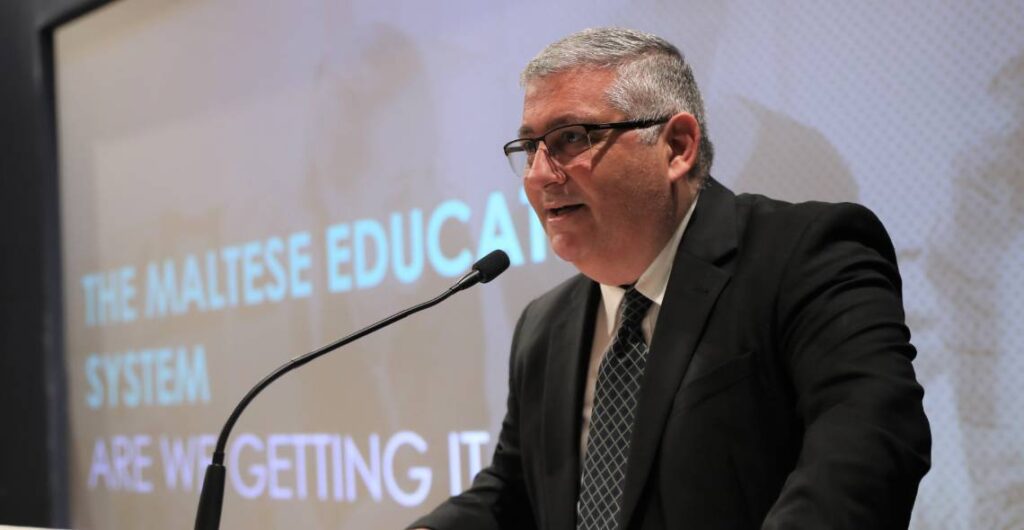
Another keynote speaker in this conference was Mr Märt Aro, Co-Founder of DreamApply and the Nordic EdTech Forum – N8. Mr Aro stressed that all European countries need to prepare for automation and Web 3.0. He said that both interphases are being ignored by schools and instead the focus is on teaching things that are quickly becoming irrelevant. He explained that the problem is that children are taught not to question what they are learning, but than they are then expected to reach the workplace with cognitive skills and decision making power. He encouraged educators to adopt adaptive digital learning environments and to overcome the barriers that our existing education system has built over time.
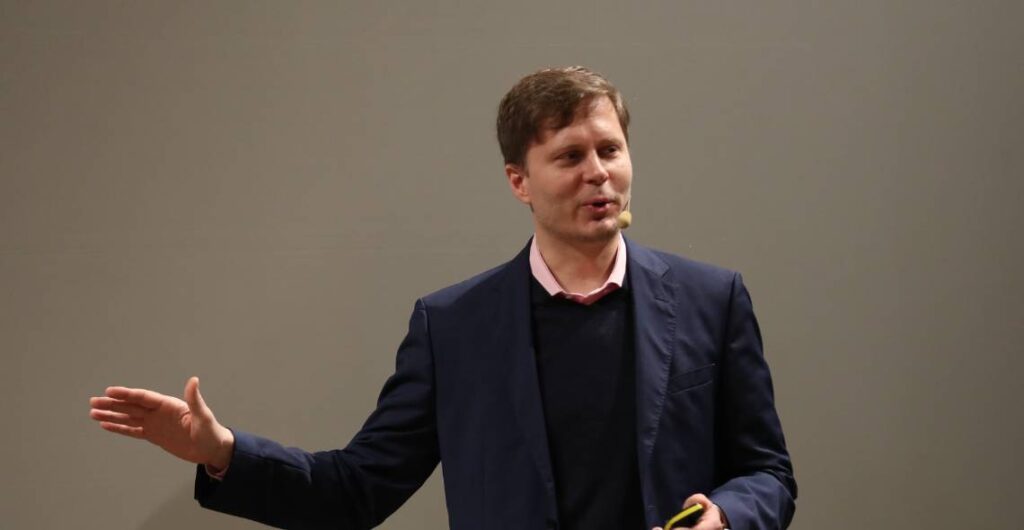
Ms Fabienne Ruggier, Chairperson of HR and Talent Committee within The Malta Chamber also gave a presentation during this event. She touched upon the problem of restricted data in a policy area that should be data-driven and informed. She presented a pilot experiment that was carried out over a period of three months in the area of Labour Market Intelligence which proved that 80% of the advertised skills were technical, followed by marketing and compliance, with soft skills being still underrepresented or very vaguely presented.
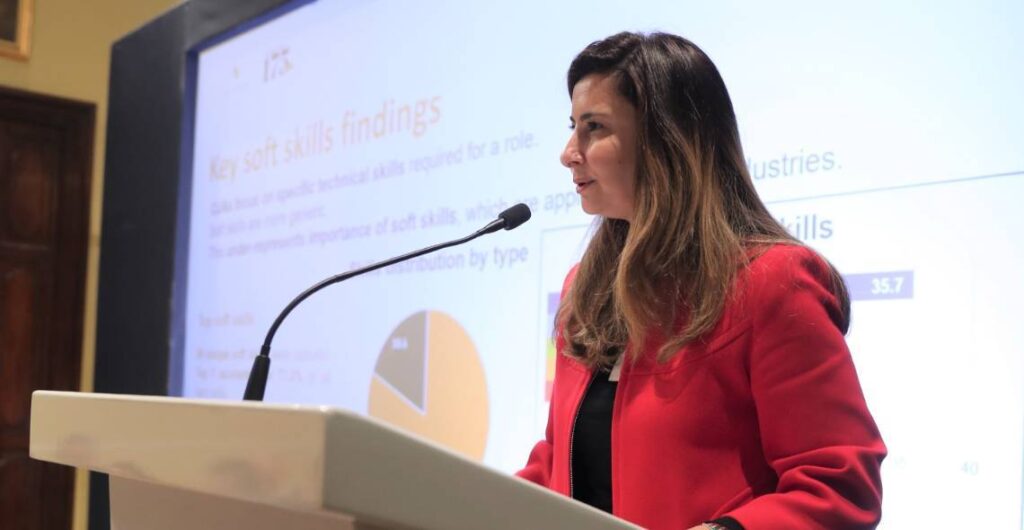
Dr Erika Galea, Education Consultant, spoke about the potential of Educational NeuroScience and how it places the student at the centre of the educational system and maximises teaching and learning by promoting the deeper learning skills. She explained that with the understanding of the underlying biology of our mental processes, educators can have a direct role in identifying improvements in our local existing educational practice.
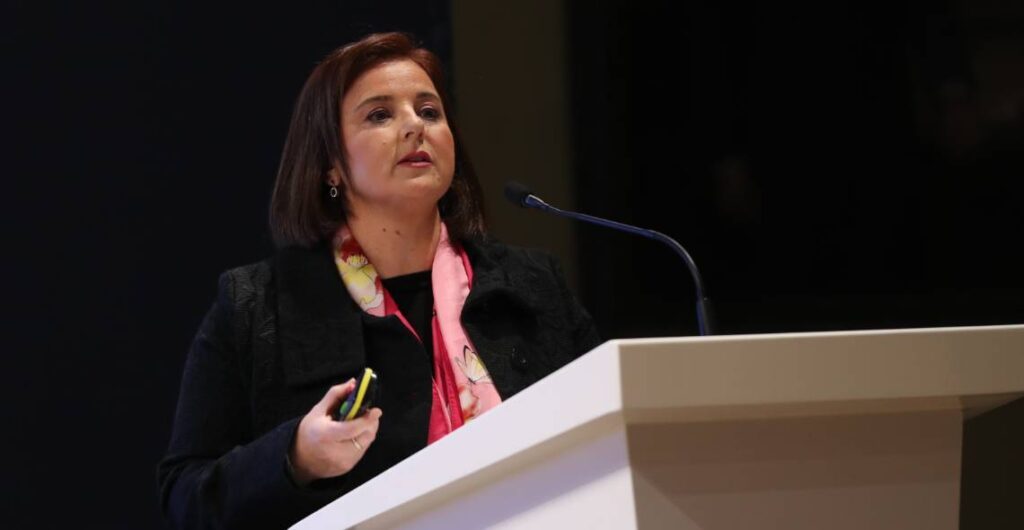
Mr Emile Vassallo, Director General of the Department for Educational Services, reacted to the various presentations. Mr Vassallo acknowledged that this event served its purpose by giving stakeholders the right platform to discuss the future of learning and confirmed the interest of the education department to work closer with The Malta Chamber to bring about the required change.
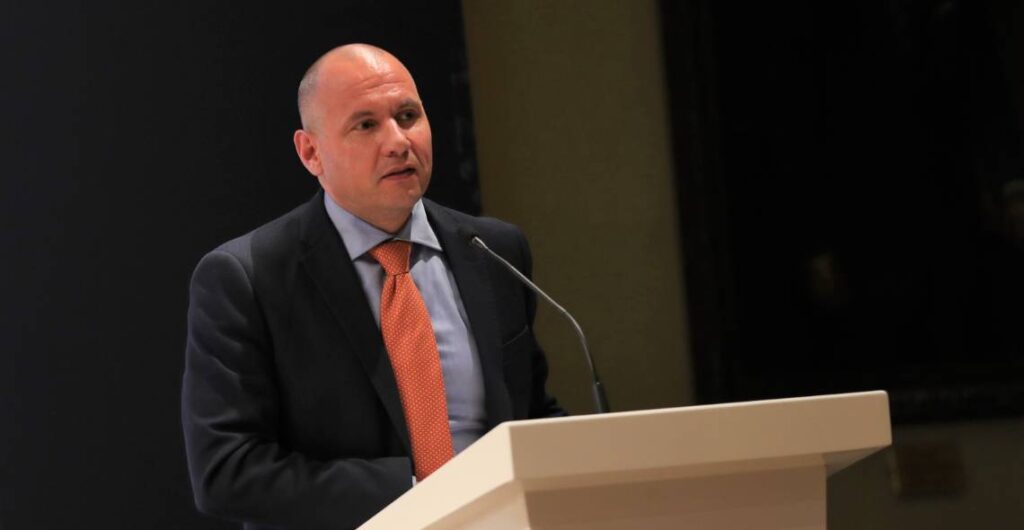
Finally, Dr Marthese Portelli, CEO of The Malta Chamber highlighted the importance of this event as it brought both academia and business together to discuss a way forward. Dr Portelli said, “The Malta Chamber has the proper structure in place to pave the way forward and design a strategy focusing on short, medium and long term goals. She referenced the Education for the Future Policy Document launched in June 2021 wherein The Malta Chamber had highlighted the importance of lifelong learning, having period curriculum reviews, developing and empowering educators, and introducing Social Emotional Learning and Service Learning for both students and teachers.
